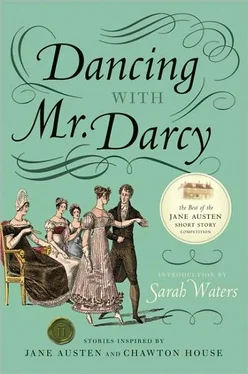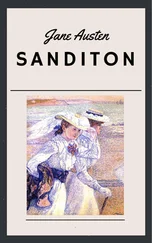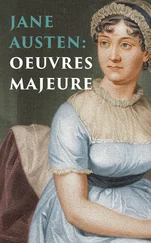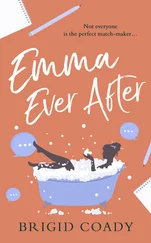We go for a walk in the rain, along a path that hugs the sea; our heads bent against the cold. The rocks are littered with plastic tubing and buoys washed up from the nearby fishery. As usual Aidan walks as if there’s somewhere else he’d rather be. ‘You have two modes,’ I call out. ‘The first is Aidan Jokey Mode, and the second, Aidan Words Mean Nothing.’ He smiles, unsure. He asks me about the film we watched. He says there were a lot of flashbacks for such a simple story. I agree. The motivations of the characters were way too obvious. Aidan leads me to a bench facing out to sea. He shows me two names carved into the wood. ‘Dan and Sophie; they came to stay. One evening they went out for a walk, sat on this bench. When they came back Sophie said Dan had asked her to marry him. She said yes.’ ‘How romantic.’ I say. Then we turn and walk away.
We’re sitting on the sofa in the sunny room with a view right across the bay, and our conversation accidentally touches on love. I ask Aidan, ‘what are your pre-requisites?’ He crosses his arms. ‘I don’t have any. Things just happen.’ I want to remind him of the time he told me how a girl had broken his heart. I want to ask ‘How can a man with no desire have his heart broken?’
When we pop in to see Aidan’s brother and his wife, it’s like the two of us dropping by. I watch Aidan while everyone is talking, and I am filled with that quiet, deep, heart-swelling sort of happiness. I stole the words right out of your mouth, but they fit so well, Jane, I couldn’t help it. Aidan says he may get married one day and have children. He says it like he might pop out to the shops for a pint of milk.
Oh, Jane. What was it you said about the anxiety of expectation and the pain of disappointment? It’s Friday night already and we’re going to bed early (separately) to catch the small plane to North Ronaldsay first thing in the morning. It’s a trip Aidan’s organised for the weekend with a group of his friends – all women! He said it’s not like their sex is relevant. I beg to differ. I’d like to see his face if I asked him to stay with four gorgeous blokes and me as the lucky girl. This trip will be a Test of Character type experience. To bed: enough of dreaming.
I knew it. The four women are beautiful. Not only that, they are French and German and Scottish, which means they speak with voices to melt any man. Their names are Odette and Silke, Ailean and Innes. While we’re waiting for the plane they sit quietly, hardly speaking. I want to hate them and I almost do, but I can’t because they are friendly which is worse, because I feel loathsome and want to crawl back under my stone. I can’t help watching how Aidan is: whether he laughs longest with Innes, his gaze is deeper for Silke or his hand lingers on Ailean’s arm. Between him and Odette, something hangs unspoken. When we arrive the others squeeze around the tiny kitchen table in the hostel. I don my waterproof trousers and march off into the drizzle.
I am much calmed by my walk. I lean over a wall and watch the seals lounging about on the rocks. They lie with their backs against the cold, sharp edges, peering at me from upside down. They scratch and clap their feet, as if relaxing on chaise longues and deep-pile carpets. Mist floats down over the sea and I feel the peace that often comes with being alone.
Jane, this is not the first time I’ve fallen down the well of my own vanity. I’ve seen meaning in the few hopeful words Aidan has given me, words that could just as easily have been offered in friendship. It’s like reaching the top of a mountain only to find that I’m the same person I was when I set out. It is the view that’s changed. It’s exhilarating; yet I feel like a small balloon not quite set free.
At dusk the six of us slip across rocks in the rain, clambering down to the beach. We watch the strange sight of sheep eating seaweed by the edge of the sea, their delicate legs like burnt matchsticks, lightly tripping over the rocks. We wait for each other as we clamber along. Perhaps we’re each a little in love with Aidan. In the evening we eat pasta and drink wine and play charades, shrieking with laughter at each other’s frantic mimes, our damp coats hanging over doors and our faces pink. What a desolate island this is; how spellbindingly beautiful.
In the morning the sun is soft and the sky an unblemished blue. We head out for a walk along the sandy beach stripped bare by the tide. We move along, sometimes together in pairs, sometimes scattered apart. Aidan runs up behind me and hurls us both towards the oncoming waves. He shows me an empty shell then hurls it out to sea. Then he picks up a small piece of wood smoothed into the shape of a wave. I wait for him to throw it away, but he gives it to me and I hold it in my hand. When he isn’t looking I tuck it inside my pocket. On the way back we pass a field of lapwings dancing in the air. They suddenly drop and roll, their paddle-shaped wings flapping about drunkenly, then up again; their wheezing, bubbling song catching on the wind.
While I’m packing up my waterproofs, Aidan and Odette are covering each other in pretend punches and karate kicks. A little later Odette looks at me and says, ‘you’ve caught the sun.’
My last day. I help Aidan strip the bed. He says if he washes everything now he can move back in to his room tonight. Jane, I’m one step closer to knowing myself. Love – if it does – shouldn’t it just happen?
Aidan tells me of a time he flew away from Orkney. He says tears rolled down his face. He doesn’t call it crying. He just says, ‘The tears kept on falling.’
We say goodbye.
Later, flying away, I cry.
My inspiration: I wanted to capture a little of Jane Austen’s universal truths. Unrequited love seemed to be high on the list; it also has a timeless quality – an affliction human beings will continue to endure despite the world changing around them. Jane was also a prodigious letter writer – a format she perhaps considered a safe place in which to write down her true feelings. I wanted to mirror this in the style of the story. It was only when I finished writing that I realised my narrator had remained nameless. Perhaps the mark of a truly universal ‘I’.
Eight Years Later
Elaine Grotefeld
They turned the corner and Chris knew this was the place, even before he saw the sign. He gripped the steering wheel to hide the onset of trembling.
Beside him his mother peered through her new-for-the-trip prescription sunglasses at the handsome red-brick house. ‘We’re here,’ she cried, and slapped the dashboard.
He still hadn’t told her.
There was nowhere to park directly outside the house – which he liked, it reminded him this wasn’t North America – but they found a place down a leafy side street. His arm under hers, Chris led his mother towards the house. They passed an open area with a few swings – where a young boy and his dad (Chris presumed) rugbytackled each other on to the long grass, rolled in the last warm days of summer. No sign of the mother… was she in the house? He both hoped – and hoped not.
He took in the large, square building set sideways to the road so that the white front door faced a green expanse of garden. He scanned the big Georgian windows on the ground floor.
‘I wonder which one she sat by to write.’ He tried to remember the snippets he’d once learnt about Jane Austen, this extraordinarily witty writer, favourite author of the two women he admired – and, yes, loved – most in all the world. One of them was Catherine, his mother, leaning on his arm now and quietly wheezing. She wore a pink summer hat and had brought a different one for each day. She didn’t do bald well and wigs made her itch. He thought again of Ms Austen – hadn’t she written the whole of Persuasion while she lived here – in a hurry, it was thought, already feeling ill?
Читать дальше












